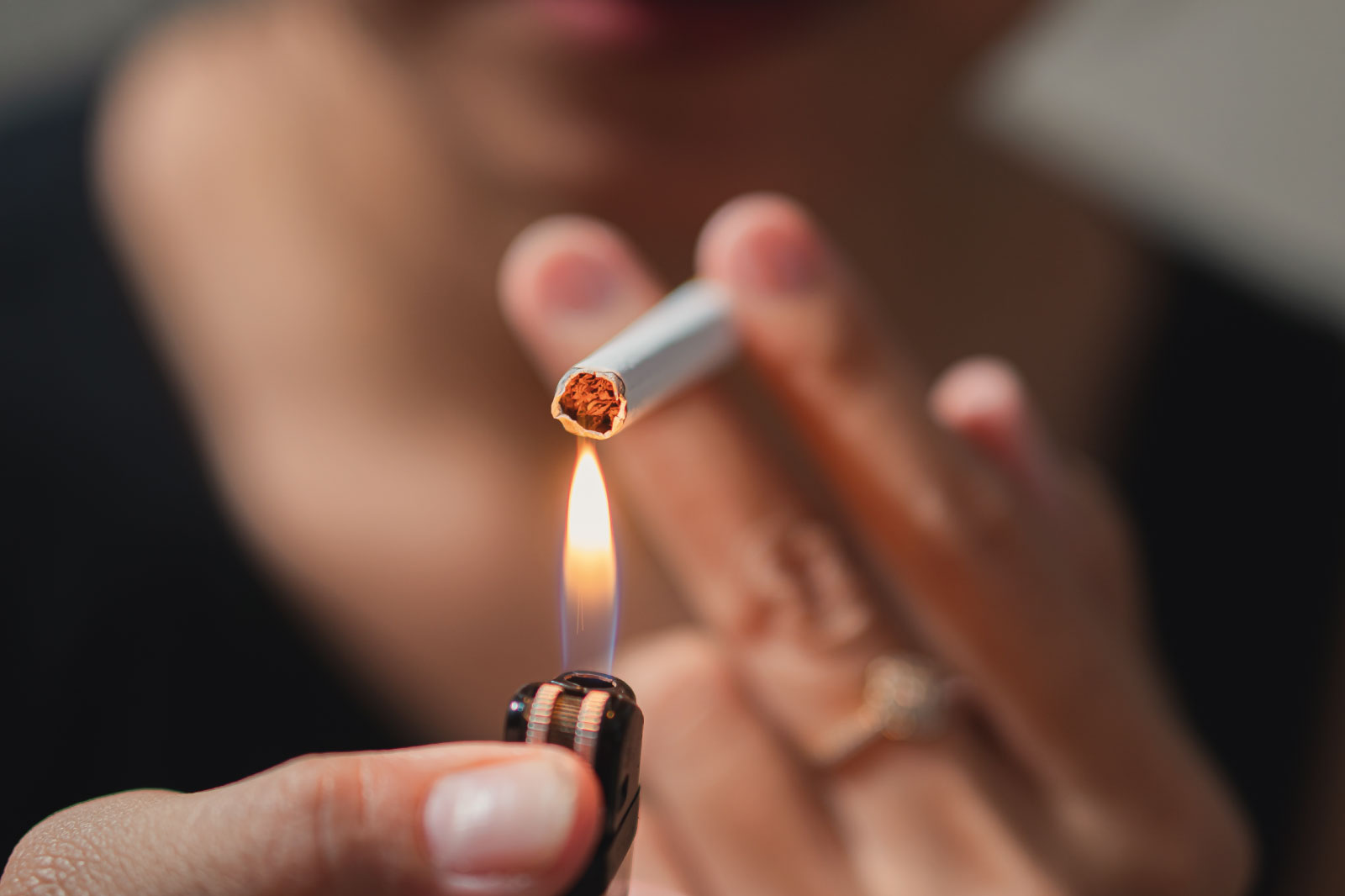
What are the risks of smoking after surgery?
Short answer: pain. Long answer: impaired healing, persistent bad breath, infection, and a lot of pain. As medical professionals, we are of course going to recommend that you don’t smoke at all. If you are a smoker, we recommend refraining from smoking for at least 3 days after your oral surgery. But ideally, you would refrain for 7 to 10 days after surgery.
But smoking is an addiction. A former smoker once told me that if you can stop smoking for 3 days, you can stop smoking for life. So if it was that easy to quit, you wouldn’t be worrying about it and researching it right now.
We’re not here to judge you. We’re here to help you. Our job is to provide medical information and recommendations so you can make the best choices for yourself. So let’s delve deeper into the risks and how to avoid them. We’ll also ask if you can use nicotine patches after surgery to help avoid smoking.
Smoking creates suction which can dislodge the protective blood clot.
No matter what you’re smoking— cigarettes, old fashion cigars, candy-flavored vapes, or legal cannabis— smoking creates suction.
After wisdom teeth removal, there are sockets, little pockets of where your wisdom teeth were. As the initial part of the healing process, your gums create blood clots to protect these oral wounds.
Smoking can dislodge the clot, exposing bones and nerves and creating what we call a Dry Socket. Well, we actually call it Alveolar Osteitis, but who’s going to remember that medical term.
Smokers are 3 times more likely to develop a dry socket than non-smokers. A dry socket impedes healing, exposing your bone, gums, and nerves to the toxins you’re inhaling. Dry sockets on their own create intense pain which is difficult to treat with pain medication.
Over time, dry sockets increase your risk of infection, swelling, and persistent bleeding. Perhaps most importantly, smoking impairs bone regeneration. Oral surgery relies on bone tissue regeneration. It’s critical for healing and for the success of any dental implants.
“Are nicotine patches a safer alternative?”
Again, as medical professionals, we do NOT recommend nicotine of any kind. But nicotine patches cut the suction and the oral exposure out of the equation.
So yes, using nicotine patches is safer than smoking or vaping after oral surgery, but we still recommend you refrain from nicotine for at least 3 days. Again, 7 to 10 days is ideal.
Nicotine is a vasoconstrictor, meaning it constricts your blood vessels, reducing blood flow and tissue regeneration.
“What about Cannabis Edibles?”
Cannabis is one of those drugs that will always find a legal loophole. Cannabis was decriminalized in Virginia, but then certain cannabis chemicals were restricted, so cannabis growers cultivated different chemicals to get around those new laws. And so the tug-of-war between cannabis and lawmakers continues.
Inhalants, drugs that can be inhaled, are bad for post-surgical recovery. Alternative drug delivery methods are safer by comparison. But we still don’t recommend it. Cannabis has been studied for its potential medical benefits, but there is still a lot we don’t know. There are various adverse side effects, and potential long-term risks that still need to be studied.
In conclusion, refrain from recreational drug use for at least 3 days after oral surgery.
If you’re really dying for a smoke, then nicotine patches are safer by comparison but still not recommended. If you fear that you cannot go 3 days without drug use then consider addiction treatments.

